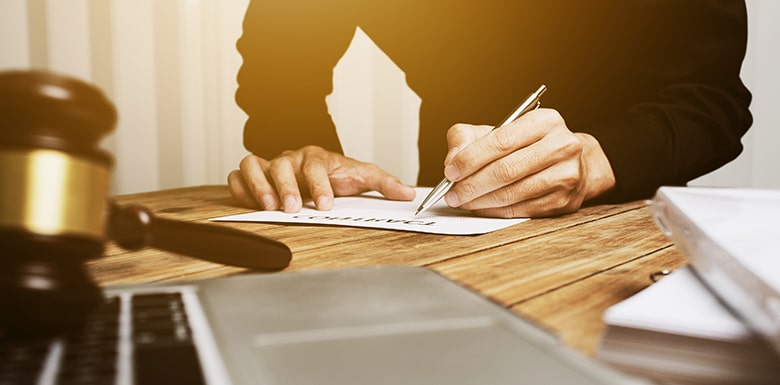
After you’re in a severe car crash, the police report is one of the first things you need to file a claim against a negligent driver. It has vital information, including crash details, date, location, damage, whether a driver was ticketed or arrested, witness statements, and contact information. But what should you do if some of the information is wrong?
A police officer at the scene of a crash may have conflicting stories to sort through during a stressful situation. It may be at night, the weather could be bad, and someone may be severely hurt. No matter the error, don’t ignore them and act as soon as you can. Providing information backed by documentation can help convince the officer to correct the report.
Why Does an Incorrect Police Report Matter?
The police report sets the tone for your insurance claim or lawsuit, so, ideally, it has accurate facts. The officer is seen as a neutral party who views the situation through the eyes of law enforcement professionalism. The report carries weight and is the starting point of our and the insurance company’s investigations.
What may be especially damaging is mistakenly being ticketed or arrested because the officer got the situation wrong. You will need to fight that ticket and defend yourself in the criminal process to remove these issues from your case. If you do nothing about them, you will be blamed for the accident, and you may get little or nothing from an insurance carrier.
Even without a significant error like a ticket you didn’t deserve, an incorrect police report that makes you look at fault gets your case off to a bad start. It may not be the end of your claim because it can be corrected, and our investigation may establish how and why the report’s wrong.
What Mistakes Might be Made?
Mistakes can be due to human error, conflicting information given by the parties, or the officer making judgment calls based on incorrect information.
- A human error can be an incorrect date, the wrong location or contact information, or the report lacks witness statements. These issues should be the easiest to clear up, especially if you have photos or videos of the scene. You can give your contact information, a photo of the other driver’s license if you have one, and the identities of any witnesses if there are any.
- The disputed information will probably be harder to change. The other driver may claim you did or didn’t do something that caused the crash. The officer may have found their version credible. If witnesses or facts make your side of the story more convincing, make them known to the officer.
- Judgment calls may result from a mistaken understanding of what happened. You may be listed as the at-fault driver because the officer believed the other driver’s story, not yours. By presenting additional facts or pointing out how the facts conflict with the other driver’s version of events, the officer may change the report.
No matter the error or its cause, it should be addressed.
How Can Mistakes Be Corrected?
If you notice a mistake in the report, act quickly for the best chance of fixing the issue. If you communicate with the officer and ask the report to be changed:
- Be polite and professional. An officer may be reluctant to help if you give them an attitude or criticize their work.
- Provide any additional information such as your car’s registration or insurance details
- Be sympathetic and tell them you understand their job isn’t easy. Thank them for their help. The officer may be in a “no-win” situation where both drivers want the report changed.
- Stay calm, be professional, and ask the officer directly.
- Don’t take this issue to their supervisor unless it’s necessary.
Put yourself in the officer’s shoes. What would you want to see or hear to change the report?
When Should I Get Legal Help?
If the errors aren’t factual mistakes but judgment calls that blamed you for the crash, you may be better off with the help of an experienced attorney. They will have more experience working with police officers and past success when convincing officers to change reports.
The more an attorney speaks for you, there’s also less risk you’ll say something that makes you appear at fault.
An Accurate Police Report Helps Tell Your Story
A personal injury attorney must effectively tell your story to the insurance company and, when necessary, a judge or jury. An accurate police report is part of that story, and it can carry a lot of weight when an insurance carrier puts a value on your case.
Contact The Law Giant to find out how much your personal injury claim is worth. We will investigate your accident and ensure you secure the fair compensation you deserve. To schedule a free, initial evaluation of your case, contact us today at 866-523-4167.
Related Posts
Recognizing the Signs of PTSD After a Traumatic Car Accident in Texas
4 Expert Witnesses to Help Your TX Car Accident Case
Why is Your Texas Car Accident Settlement Delayed?
"*" indicates required fields
